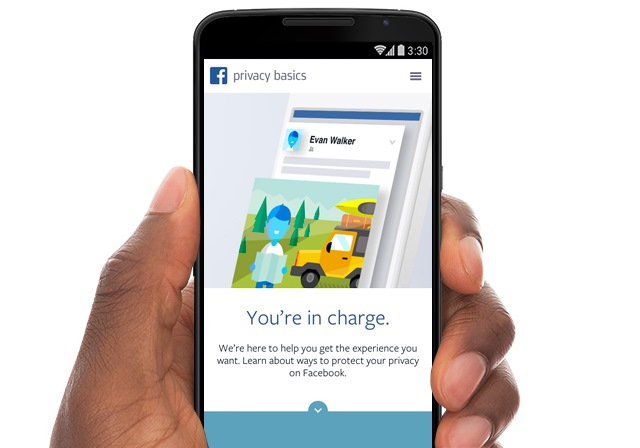
Forget male and female, Google+ now supports infinite gender identities
What's your gender? For some people it's a simple question -- nothing more than checking one of two boxes. But it can get more complicated than simply indicating that you're male or female. Many people feel that gender is not important and would prefer to keep this information to themselves. This is now a wish that Google respects on Google+.
In fact Google is going far beyond this. Starting today Google+ includes support for an infinite number of gender identifies. So whether you would rather not disclose where you fit onto the gender spectrum, or want to proclaim it outside of the confines of the usual binary options, now you can.

Social networks reimagined as guys -- hipsters, businessmen and kooks
A little over a year ago, fashion photographer Viktorija Pashuta released images from a photo shoot entitled What If Girls Were Internet Browsers. It was a simple, fun idea in which Internet Explorer, Firefox, Opera, Chrome and Safari were given female personas and represented by models. Now Viktorija has a new project -- What if Guys Were Social Networks.
The idea's very similar to last year's project. Twitter, Instagram, Facebook, Google+, tumblr, Pinterest, flickr and LinkedIn are all anthropomorphized into eight men, each with their own unique look and personality. In the line-up of social networks, all of the major players are represented, but the new kid on the block, Ello, is notable by its absence.

Facebook joins forces with ESET to fight malware for free
As part of an on-going battle against malware and abuse of the social network, Facebook has joined up with security firm ESET. The partnership follows on from the news back in May that Facebook was working with both Trend Micro and F-Secure to try to combat the threat of malware. The addition of ESET makes a trio of security partners, and Facebook has incorporated the company's technology into its own security systems.
Facebook hopes that by combining the power of F-Secure, Trend Micro and ESET, it should be possible to block the appearance of more malicious links from newsfeeds. The thinking is that adding more security providers will helps to catch even more malware without the need to rely on users having antimalware software installed.

Facebook tells advertisers how to (very) closely target users this holiday season
Ads are hard to avoid at the best of times, but it has a tendency to get a little worse in the run-up to Christmas. Advertising has become increasingly prolific on social networks, and this is certainly true of Facebook. As we enter the holiday season, Facebook is providing advertisers with advice that will enable them to deliver finely-tuned ads at highly specific sets of users.
If you picked yourself up a new tablet in the Black Friday or Cyber Monday sales, Facebook makes it possible for advertisers to pick you out of the masses. The social network is not only rolling out a couple of new features to help with targeted advertising, but also providing tips for more successful campaigns.

Twitter improves harassment reporting and blocking to boost safety
Over the years Twitter has come in for a lot of flak for the level of abuse that runs rife on the social network. Now the site is taking action by making improvements to the existing blocking features as well as refining the harassment-reporting facility. With the likes of #gamergate and various other high profile cases, Twitter users have found themselves on the receiving end of vitriol, hatred and abuse.
Today's updates aim to clamp down on these activities, making it easier for users to report problematic tweets and easier for Twitter to respond quickly to problems. There is a particular focus on making life easier to users of mobile versions of Twitter, and the blocking feature is now more prominent in apps.

Social networks do not represent the real world
Researchers have warned that big data trends discerned from social networks, like Twitter and Facebook, misrepresent the real world because they use biased information.
Computer scientists at McGill University, Montreal and Carnegie Mellon University in Pittsburgh, have discovered that social media is often guilty of "population bias", as large sections of society are not represented by the sites.

Social networks told to be honest and stop bamboozling their users
The UK parliament is calling on social networks such as Facebook and Twitter to simplify their terms and conditions. The Science and Technology Committee has expressed concern that privacy policies and other documents are strewn with legal terms that most people do not read or understand. This means that most social network users are simply not aware that they have agreed for their personal information to be used in various ways -- and are certainly unaware of how it might be used.
The Committee is calling for social networks to make a commitment to explain in very clear terms how personal data is shared and used. It wants to work with the government to draw up a set of standards -- almost a social networking manifesto -- that companies can sign up to.

Now Twitter is going to start monitoring which mobile apps you download
Hate 'em, loathe 'em or abhor 'em, it's hard to avoid ads. You know that you're a consumer. Companies exist because you consume, and you are encouraged to consume more and more. To help lead you to consume, you need to be subjected to advertising -- it's all part of the money-go-round of using the web.
Tailored ads are more likely to bring in cash, and social networks are in the business of gathering information about their users with a view to delivering the most laser-focused targeted advertising possible. The latest venture by Twitter involves keeping tabs on the apps you install on your iOS or Android phone or tablet.

Could Facebook at Work put the work back into social networking?
There are some people who just can’t get enough of Facebook. Sharing the occasional thought or ponderance is not enough for many who feel the need to live out their entire lives on Zuckerberg's social network. A lot of workplaces -- perhaps sensibly -- block access to sites such as Facebook, but new reports suggest that the social giant is keen to enter the office on legitimate terms with Facebook at Work.
At the moment, Facebook is the bane of network admins' lives as employees find new ways to bypass restrictions that may be put in place. But the Financial Times says that it may soon be welcomed with open arms as a work-centric version of Facebook is rumored to offer Office- and Google-baiting document collaboration, and LinkedIn-aping professional networking.

WhatsApp and Facebook lead the way with global app engagement
Facebook’s stable of apps lead the way in Western Europe and around the world when it comes to user engagement on social media and messaging apps.
Mobidia’s new "Social Media & Messaging Engagement: Chat, Social, Videoconferencing, Rich Media and VoIP Apps" white paper found that social and chat apps dominate the top end of the mobile app usage scale and Facebook is a huge part of why.

Facebook proposes privacy policy changes in simplified, prettified paperwork
Facebook gets something of a bad rap when it comes to its privacy policy. Delve into the social network's terms and you're almost certain to find something you disagree with. This is the same with many companies, particularly those with an online presence, but users seem to be continually surprised to discover how their data and activities are being used and tracked. Part of the problem is that -- just like with software EULAs -- very few users bother to read through policies in full.
Mark Zuckerberg's social network is looking to change that. Facebook is introducing Privacy Basics which provides easy-to-follow guides to controlling how your online content is shared with others. But there are also a number of changes proposed to its privacy policy. Facebook is looking for feedback, and assures users that "you’re in charge." But you'll need to be quick -- there's only a week to give your opinion.

Most parents believe Facebook is a bad influence on their kids
A new piece of research has emerged showing how parents feel about the potential positives and negatives of their offspring’s use of technology -- and social networks didn’t come off well.
The Parenting in the Digital Age report was carried out by Hart Research Associates for the Family Online Safety Institute (FOSI), and found that on an overall level slightly more parents (53 percent) felt that the benefits of tech outweigh any drawbacks. The boon foremost in parents’ minds was the potential for education and learning online and with technological devices.

AVG: Seven in ten teens don't know all their 'friends' on Facebook
Security firm AVG has published a new report looking at online privacy which shows the considerable amount of regret admitted by some teenagers when it comes to things they have posted online -- and the fact that seven in ten teens don’t know everyone they have befriended on social media.
The Digital Diaries research, which quizzed some 4,000 teenagers aged between 11 and 16 -- not that those under 13 are technically teenagers, but we’ll let that slide -- found that 28 percent of teens said they later regretted posting something online.

Facebook is taking over from Google as gatekeeper of the internet
Google is widely regarded as being one of the controllers of the internet. It is by far the most popular search engine and if a site does not appear in the first few pages of results, it may as well not exist. But Google is far from being the only gatekeeper to the internet; Facebook is increasingly vying for that crown, whilst making efforts to make access more secure through Tor. But what does this mean?
Facebook accounts for a terrifying percentage of web traffic -- it is the second most visited website in the world according to Alexa. This means that it has a huge influence online, giving the social network the opportunity to shape the web and holds great sway in determining which sites, services, and stories rise to popularity. To many people, this influence is all but invisible, and this is perhaps the most concerning part of the story. So how does Facebook's influence present itself?

Twitter teams up with Women, Action & the Media to fight online harassment
Social networks have long been a domain for trolls, but in more recent times there has been an increasing problem with harassment of women. There have been a number of high-profile cases recently, including #gamergate, where women have found themselves targets of vicious attacks online. Women, Action & the Media (WAM!) is a US non-profit whose aimed is to fight for gender equality in the media, and its latest project involves collaborating with Twitter to help fight harassment and abuse.
The project's aim is to better understand how online persecution can be tackled. WAM! explains that "women of color, queer women, trans women, fat women, and other oppressed groups of women are especially targeted and abused", but the Twitter collaboration is design to help any Twitter users experiencing "gendered harassment".
